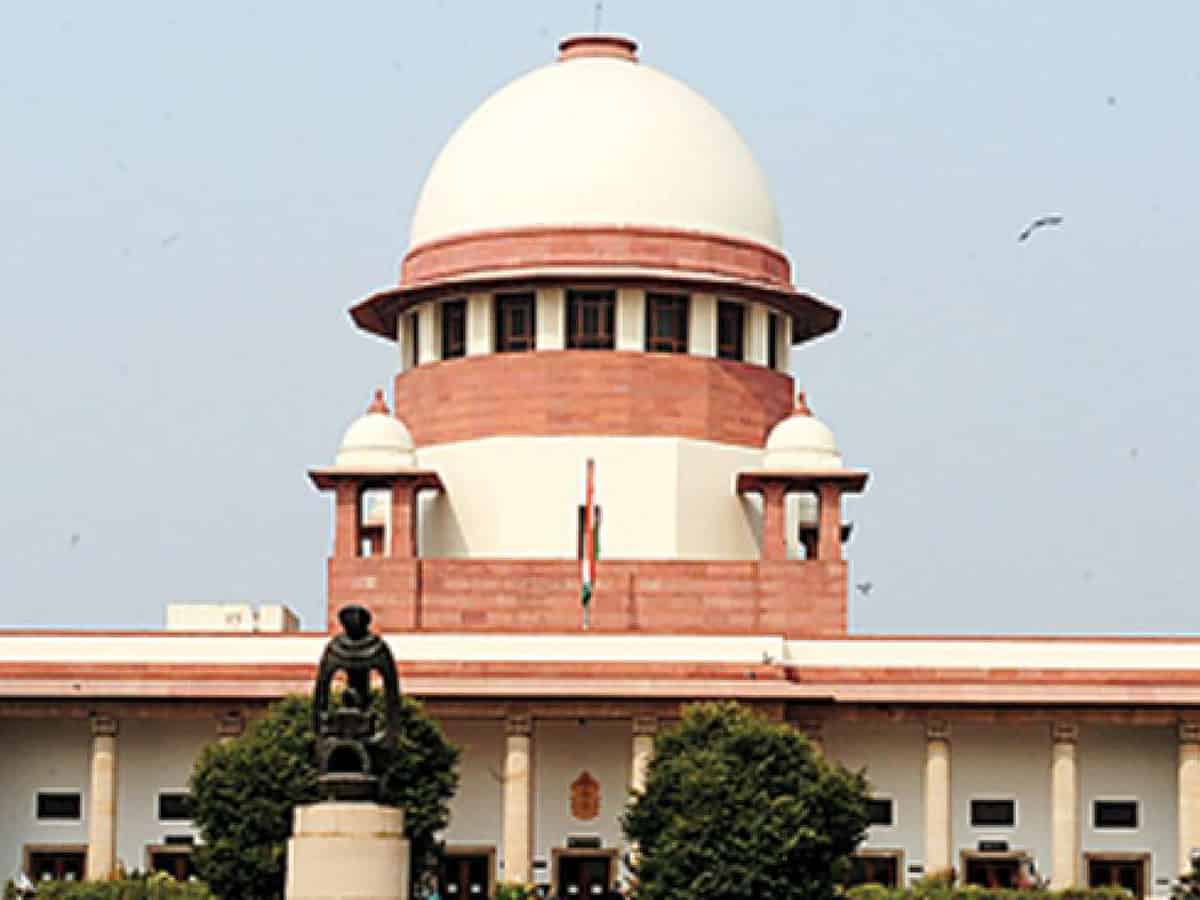
New Delhi: The Supreme Court on Tuesday junked a plea seeking the setting up of a judicial inquiry commission, headed by a former Chief Justice of India (CJI), to inquire into the clashes in Rajasthan, Delhi, Madhya Pradesh and Gujarat on the occasion of Ram Navami and Hanuman Jayanti.
A bench comprising Justices L. Nageswara and B.R. Gavai said: “What sort of relief? You want an inquiry under the former CJI? Find out if someone is freea. What kind of petition is this?”
Advocate Vishal Tiwari, petitioner-in-person, submitted that two similar matters are already pending and it was filed in the beginning itself but it could not be numbered.
Tiwari emphasized that the situation is alarming and added that there are allegations that a one-sided investigation is being carried out.
He urged the top court to set up the judicial inquiry commission to inquire into religious clashes.
The bench said: “Don’t ask for such reliefs which can’t be granted by this court… dismissed”.
The plea said: “The present situation prevailing at various places of the country due to the political and community tensions orchestrated by unregulated powers of the society with no action from the government pertaining to prevention of such incident along with the discriminatory bull dozer justice action of various state government requires the immediate attention of court.”
It said in Madhya Pradesh’s Khargone, clashes between two communities took place on March 18, which saw rioting with more than 50 houses and properties being burnt and gutted.
“In response to such conflict and tension, the Madhya Pradesh government used the bull dozers to demolish and vandalise 16 houses and 29 shops of the alleged stone pelters. The government in this regard has taken the law in its hand and has imposed sanctions on the alleged stone pelter which is a sign of anarchy and a nature of tyranny. The state has the responsibility of prevention and regulation of such conflicting situations and to prosecute those individuals who have been charged with the offence after thorough investigation.”



